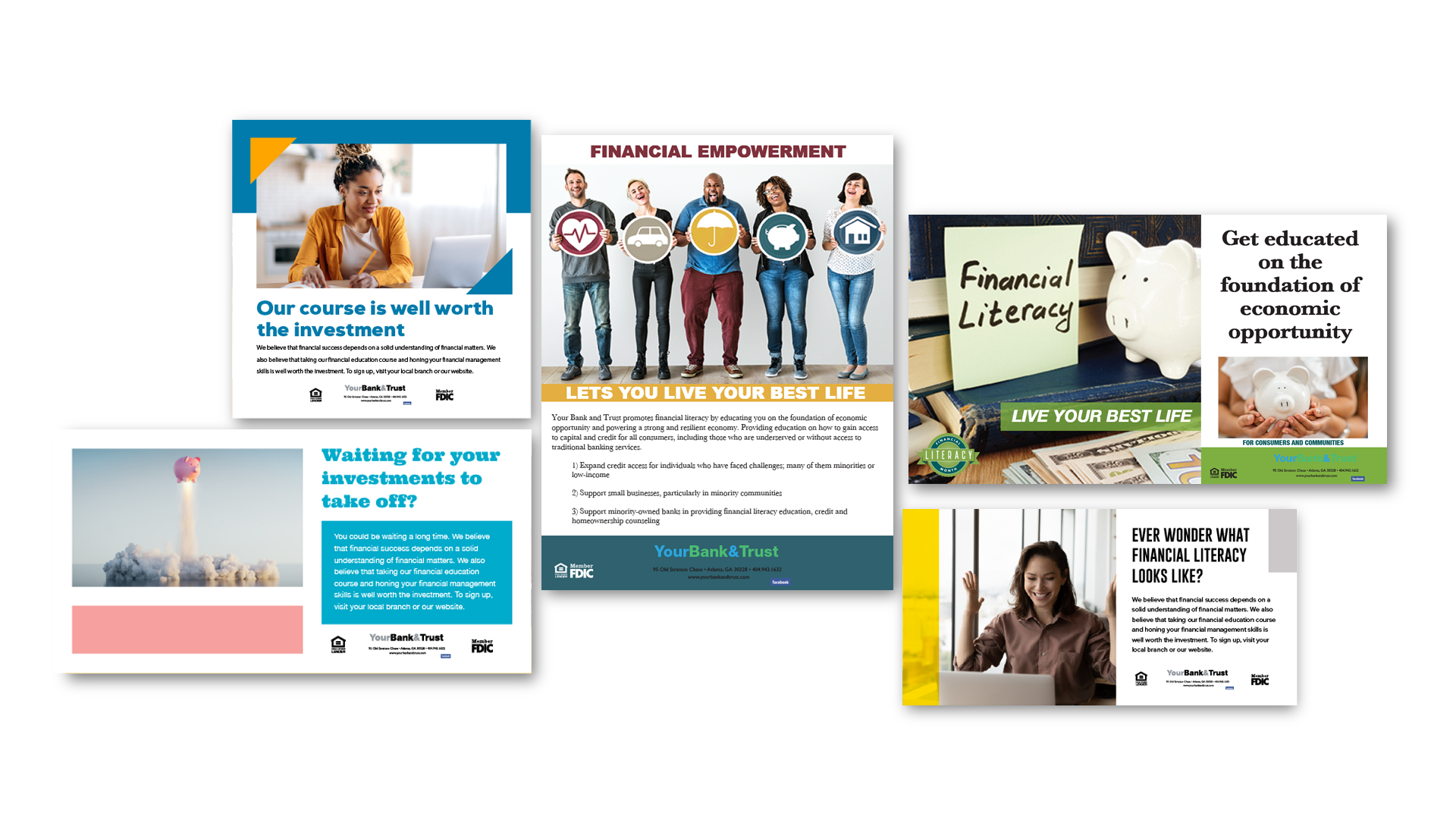
April is Financial Literacy Month. Why is that important to banks? When most folks hear the phrase “financial literacy,” they often think of children. And I understand that. Money management is not a subject taught to young people; not until high school and not all high schools even offer money management courses. And, as we all know, one’s ability to manage money is a life-long skill that has a tremendous impact on one’s future.
So, what is the importance of financial education programs for banks? For one, providing this personal guidance gives community banks a leg up on those online competitors that can’t offer it. Secondly, it’s an opportunity to educate customers on investment products they may know little about. Third, by educating younger customers, banks can over time increase their share of that customer’s wallet. And lastly, offering personalized services helps to reinforce a brand image based on knowledge, personal service, and trust.
Something else to consider: Today’s banking consumer is much more often involved in day-to-day financial decisions. This requires a significantly stronger financial knowledge base, one that can inform sound financial decisions for their future. Do most people “know what they don’t know” about managing their money? I don’t think they do.
The timing is right
We all know that managing money is far from simple. And, in these post-pandemic times, with an uncertain economy ahead, many are finding it extremely hard to get a handle on their finances. According to a Pew Research Center survey, one in ten people whose financial situation had gotten worse during the pandemic didn’t think their finances would ever recover. Among those who say their financial situation had gotten worse during the pandemic, 44% think it will take them three years or more to get back to where they were a year ago.
What are some of the topics you can share with your customers during April’s Financial Literacy Month?
Educate your children
Studies show that most habits regarding money are in place by age 9, meaning it’s never too early to start introducing some money management skills to your children. There are a whole host of fun and engaging ways to do this… some are as easy as a trip to the grocery store!
Create a budget
Knowing how much you have coming in versus how much money you have going out can help you understand where you can make changes to your spending to put you in a better financial position.
Have a plan to pay off debt
There are a couple of ways to do this. One is the snowball method, the other is the avalanche method. With the snowball method, you pay off the smallest of all your loans as quickly as possible. Once that debt is paid, you take the money you were putting toward that payment and roll it onto the next-smallest debt owed. Using the avalanche method, you pay off the debt with the highest interest rate first. Whichever you choose, this is what’s most important: Stick to it!
Cut unnecessary expenses
“Pay yourself first,” as the old saying goes. If that’s not possible, look to eliminate expenses that will enable you to do so. Contracts with providers, from auto insurance and cable to cell phone are surprisingly negotiable. Paying for five TV apps but only using two? It may be time to negotiate your subscriptions. Try to move that money to where it belongs to you and not someone e
See if you’re on track for your retirement goals
Once they begin working, most Americans begin adding to their 401k. However, the most important question is are they saving enough? What about CDs and IRAs? There are a whole host of retirement vehicles that are 1) available and 2) often a bit of a mystery to the average banking customer.
Check your credit score
Your credit score is an essential component of your credit profile and can play a major role in getting loans, housing, and more. Look into your credit score to see where you fall and if it’s not as high as you want it to be, work on a plan to improve it, like paying off some of your debt.
April is a perfect time to put your social media marketing to work. Consider posting these tips on a regular basis over the course of the month and invite your audience to take advantage of your money management expertise… as well as those products that will help provide them with a sound financial future.
About Bank Marketing Center
Here at bankmarketingcenter.com, our goal is to help you with that topical, compelling communication with customers; the messaging — developed by banking industry marketing professionals, well trained in the thinking behind effective marketing communication — that will help you build trust, relationships, and revenue. In short, build your brand. Like this campaign, for example, that banks can use to reach out to promote their financial education programs and investment products

To view our marketing creative, both print and digital – ranging from product and brand ads to social media and in branch signage – visit bankmarketingcenter.com. You can also contact me directly by phone at 678-528-6688 or via email at nreynolds@bankmarketingcenter.com. As always, I welcome your thoughts on the subject.